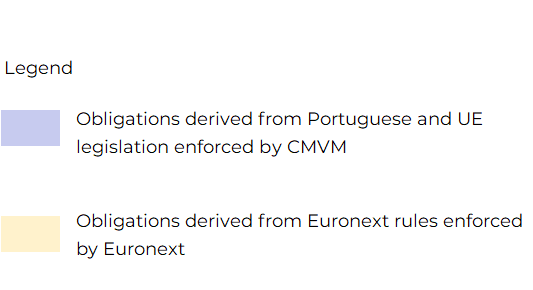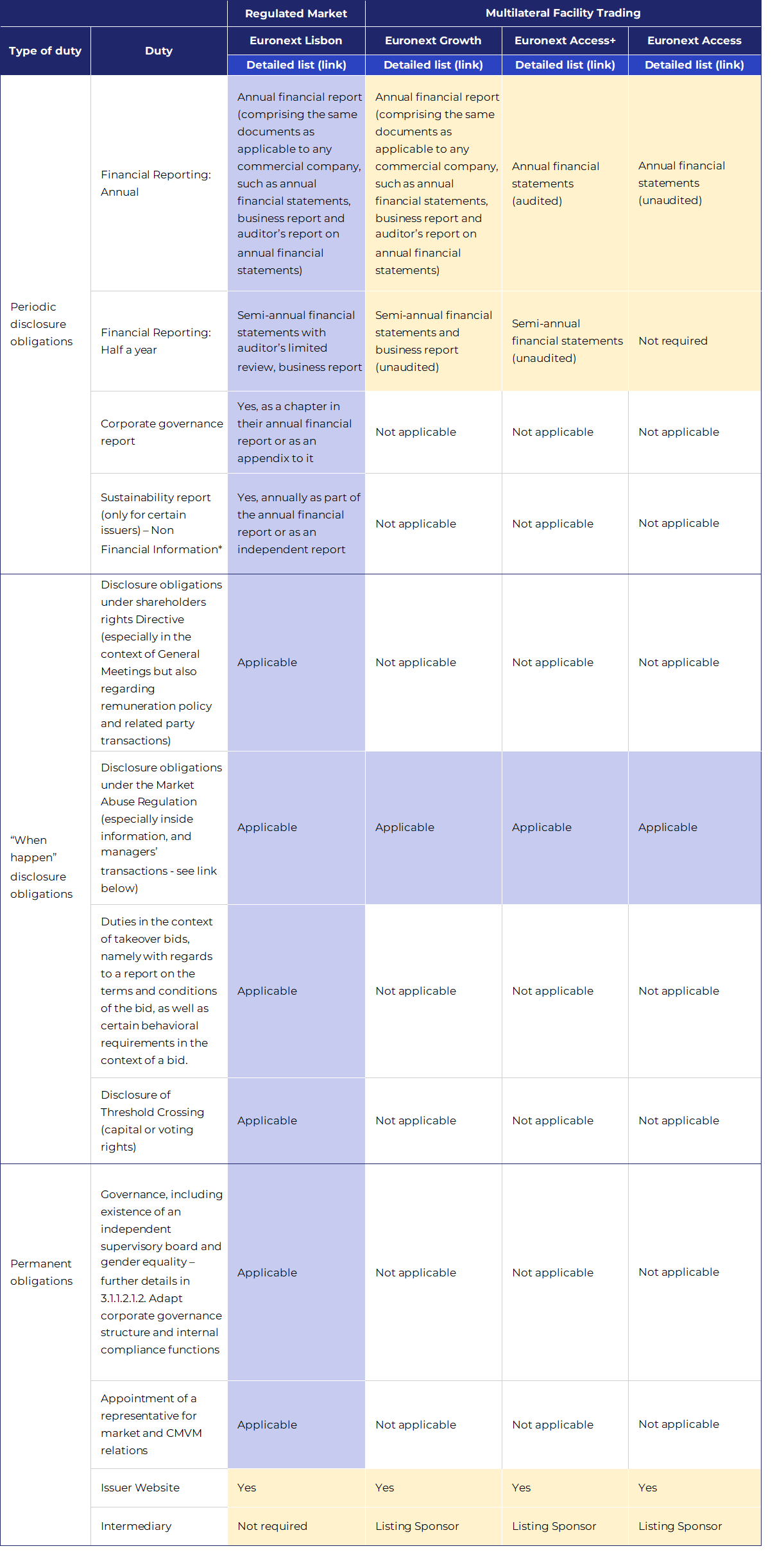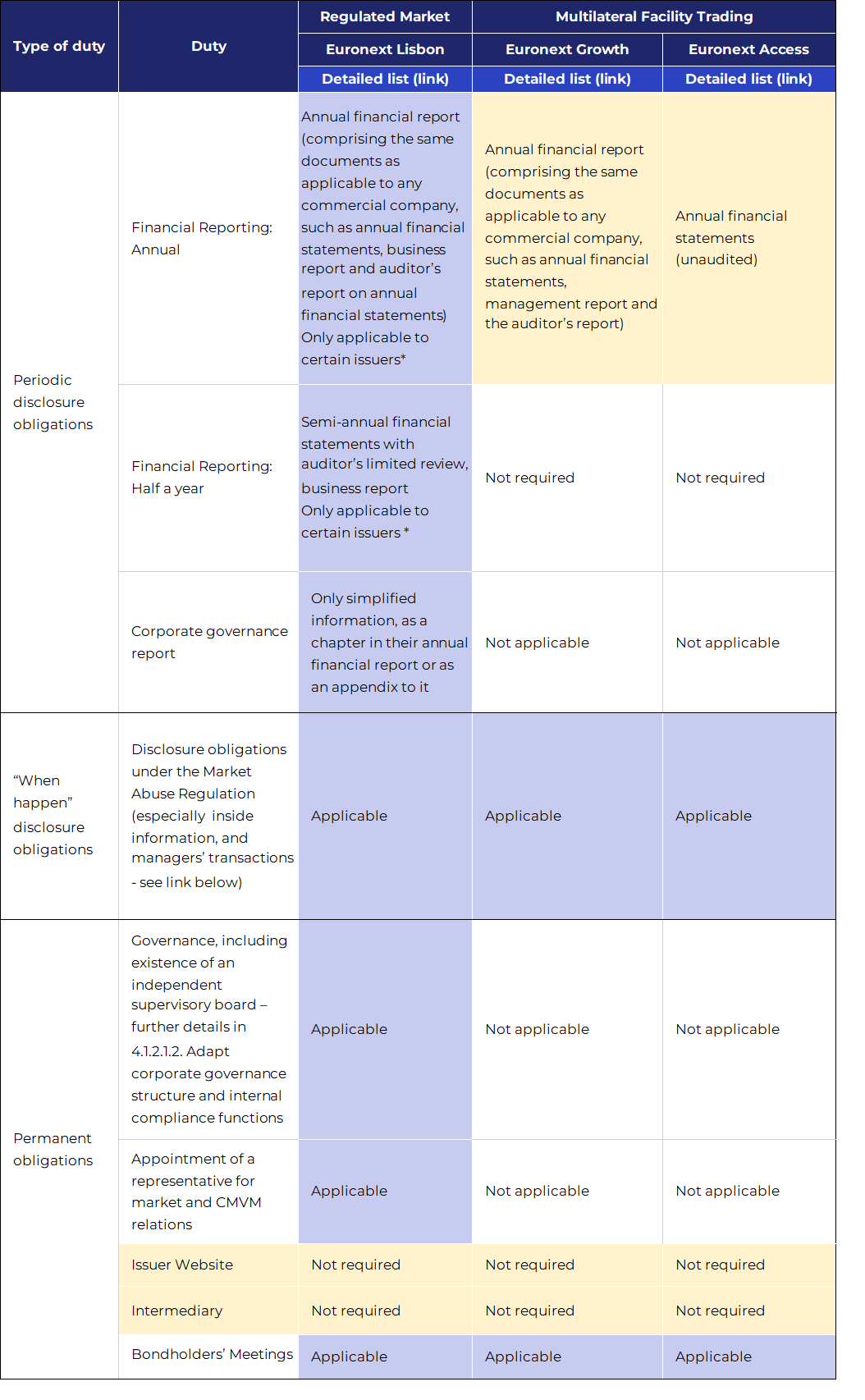Last updated:
Why market rules exist?
The existence of ongoing obligations and respective rules allows investors to be kept informed, and it is this information that enables investors to continuous monitor their interest in the Company, to make investment decisions to invest or sell the shares or bonds and to evaluate investments in future secondary offerings.
These legal obligations are intended to guarantee the disclosure of information that may impact the expectations of investors and to sustain the engagement of investors with the business project. Remember, current and future investors are not just investment providers, they can also be a useful source of knowledge. Furthermore, the dissemination of Company´s information helps building the Company´s image and strengths trust (towards all the stakeholders, including clients).
Types of rules and their role
In essence being present in capital markets implies the fulfillment of certain information disclosure obligations, that are mainly divided in periodic information disclosure obligations (e.g. financial accounts) and ad hoc information disclosure obligations (e.g. inside information).
The applicable duties depend on the type of securities (shares or bonds) and market in which they are listed.
In certain cases, it possible that, in the future, the Company no longer wishes to resort to the capital markets. If and when that time arises, it is worth knowing that the Company won’t be irrevocably tied to its prior decision to become a listed company. In short, it is possible and feasible to access, to remain, and to exit capital markets for as long as it makes sense considering the Company’s strategy.
Companies view market listing as a milestone. The IPO/bond offering sets the start of a new journey, where companies grow, reach a larger number of stakeholders and benefit of new opportunities, with a professional and transparent approach, in cooperation with its stakeholders.
CRUCIAL FACTORS FOR THE SUCCESS OF LISTED COMPANIES
Besides the compulsory minimum standards information, some listed companies also voluntarily choose to provide additional information, since optimized communication between all market participants is necessary to build trustful relationships with investors.
Investors seek reliable and timely information about the strategy, the business performance and the corporate governance practices of the companies they invest in. Timely disclosure of such information is crucial for the performance of the Company in the capital markets.
Rules detailed (shares and bonds) depending on the market
Below you can find what are the main ongoing obligations for listed companies:
Issuers with shares admitted to trading


* Applicable to any company which are considered a “large company” and additionally exceed an average number of 500 employees during the last financial year.
Access to detailed lists:
Euronext Lisbon | Euronext Growth | Euronext Access+ | Euronext Access
Issuers of bonds admitted to trading

*Not applicable if the securities have a nominal value over €100,000 or if their maturity is lower than one year
Access to detailed lists:
Euronext Lisbon | Euronext Growth | Euronext Access
For further information on further obligations access Market Abuse Regulation (MAR) .

